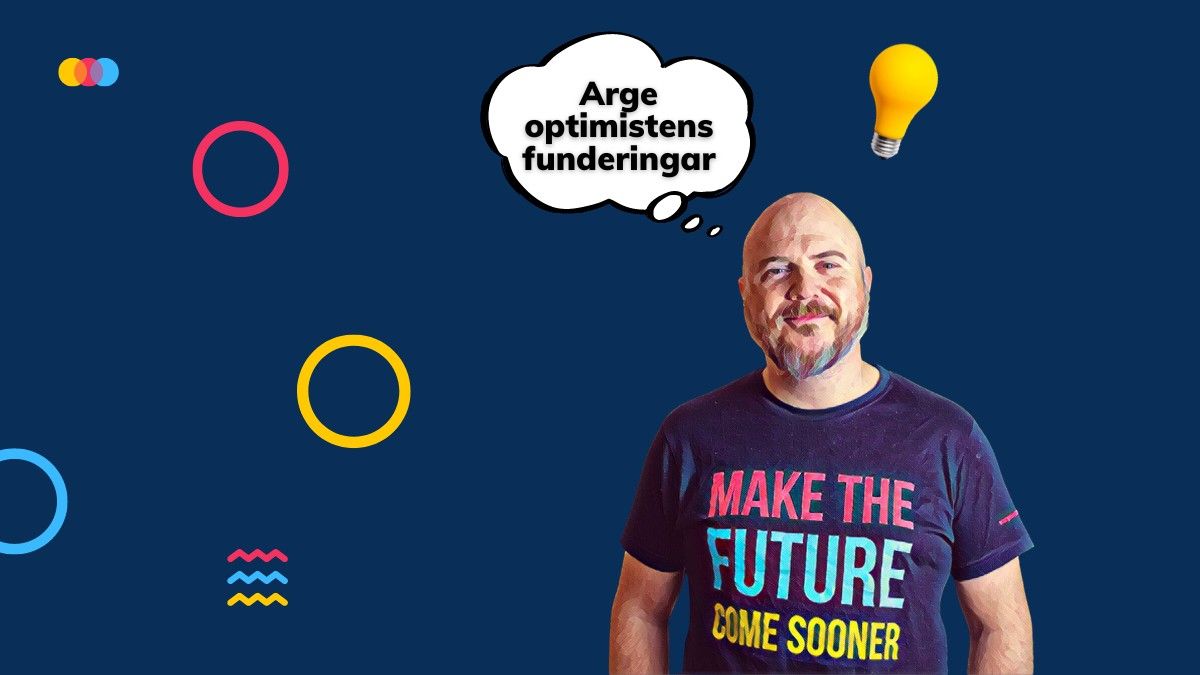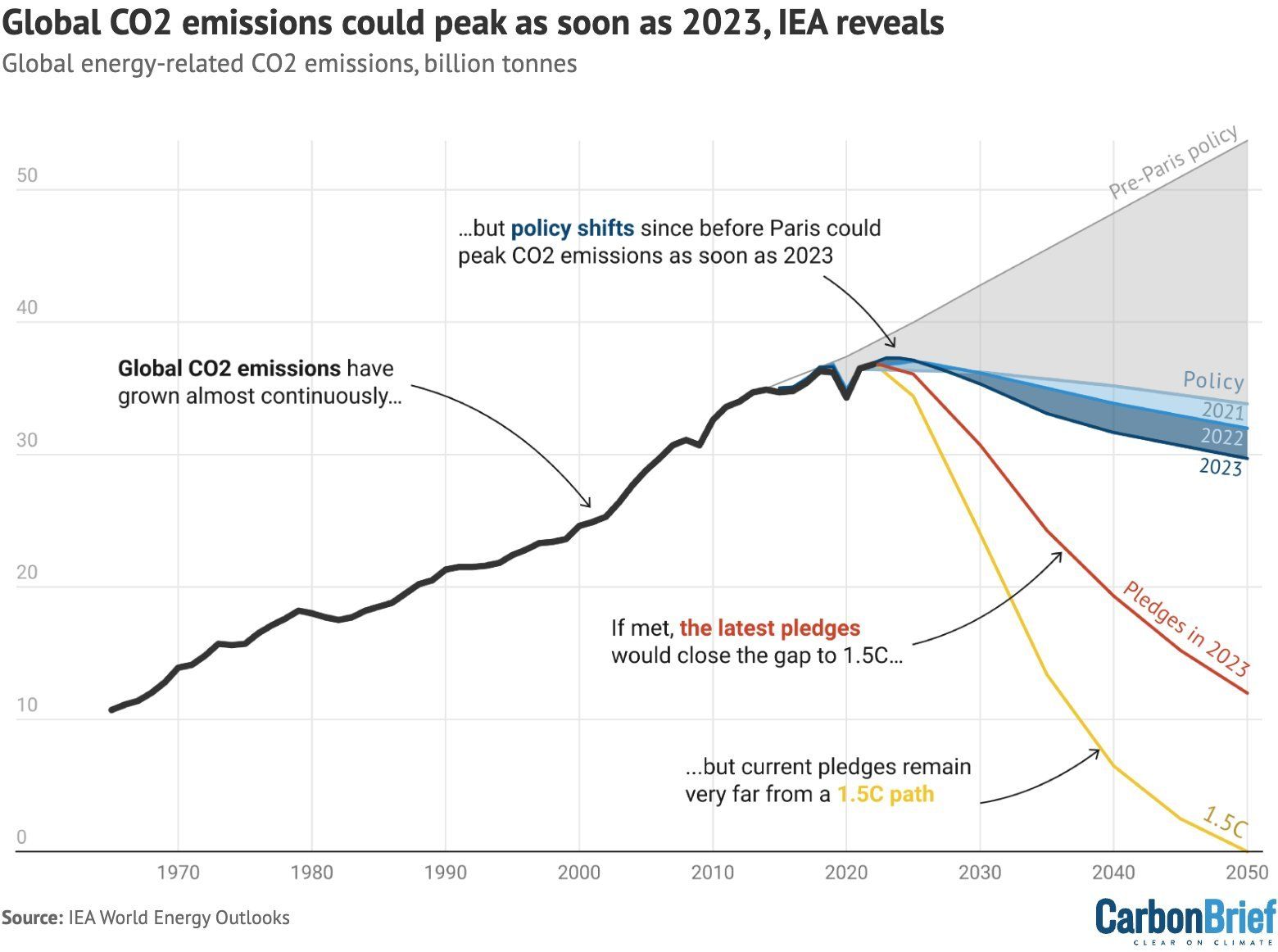
💡 Arge optimistens funderingar: Om vi reglerat internet, som vi reglerar AI
President Bidens AI-reglering är luddig och samtidigt EXTREMT specifik. Om vi reglerat internet på motsvarande sätt hade det allvarligt hämmat vår utveckling. Dessutom: Om vilken film Biden såg som påverkade hans beslutsamhet att reglera AI.
Dela artikeln
Mina funderingar, tips och annat smått och gott som jag tror passar en faktabaserad optimist. För dig som är Premium Supporter hos Warp News, men det går fint att dela det med vänner och bekanta.
⚖️ Destruktiva AI-regleringar
Förra vecken träffades världsledare, forskare och annat AI-folk i Bletchley Park för AI Safety Summit, på inbjudan av Storbritanniens premiärminister, Rishi Sunak.
Utfallet därifrån blev inte så dåligt som det skulle kunna ha blivit. Man skrev under några icke-bindande dokument, som mestadels var fritt från överdrivna farhågor om mänsklig utrotning.
Men dagen innan toppmötet skrev president Biden under en presidentorder (executive order) som reglerar AI. Det är en märklig historia. I delar ganska luddig, sen otroligt specifik. Så här står det:
i) any model that was trained using a quantity of computing power greater than 10^26 integer or floating-point operations, or using primarily biological sequence data and using a quantity of computing power greater than 10^23 integer or floating-point operations; and
(ii) any computing cluster that has a set of machines physically co-located in a single datacenter, transitively connected by data center networking of over 100 Gbit/s, and having a theoretical maximum computing capacity of 10^20 integer or floating-point operations per second for training AI.
Tänk om vi 1996 hade reglerat internet på motsvarande sätt:
"Alla organisationer som har fler än 150 servrar, vardera på minst 15GB, ihopkopplade i ett nätverk måste..."
eller
"Alla organisationer som är uppkopplade på ett nätverk med minst 10 Mbit/s..."
Så här konstigt blir det när man inte vet vad som ska regleras, men ändå bestämt sig för att reglera "AI". För utfallen från AI är ju redan reglerade. Du får, till exempel, inte använda AI för att scamma folk, lika lite som du får använda papper och penna.
En poäng jag utvecklade förra veckan i den här texten:

AI har orsakat få verkliga problem och inga samhällsproblem. Det finns inget att reglera. Existentiell risk är byggt på gissningar, och vi ska inte reglera baserat på gissningar. När problem relaterade till AI dyker upp (för det kommer) så kan vi reglera dessa då.
Jag skrev nyligen i Expressen också om detta:

Hade vi reglerat internet på samma sätt som Biden nu försöker reglera AI hade risken varit stor att internet fått ett betydligt mindre genomslag och därmed hämmat mänsklighetens utveckling. Internet är såklart inte problemfritt, men det positiva överväger rejält det negativa.
Flera har skrivit bra om detta
Ben Evans:
The hardest problem, though, is how policy can handle the idea of AI, or rather AGI, as an existential risk itself. The challenge even in talking about this, let along regulating it, is that we lack any theoretical model for what our own intelligence is, nor the intelligence of other creatures, nor what machine general intelligence might be.
You can write a rule about model size, but you don’t know if you’ve picked the right size, nor what that means: you can try to regulate open source, but you can’t stop the spread of these models any more than the Church could stop Luther’s works spreading, even if he led half of Christendom to damnation.
Steven Sinofsky:
What we do know is that we are at the very earliest stages. We simply have no in-market products, and that means no in-market problems, upon which to base such concerns of fear and need to “govern” regulation.
Alarmists or “existentialists” say they have enough evidence. If that’s the case then then so be it, but then the only way to truly make that case is to embark on the legislative process and use democracy to validate those concerns.
I just know that we have plenty of past evidence that every technology has come with its alarmists and concerns and somehow optimism prevailed. Why should the pessimists prevail now?
Ben Thompson (i svar till Sinofsky):
They should not. We should accelerate innovation, not attenuate it. Innovation — technology, broadly speaking — is the only way to grow the pie, and to solve the problems we face that actually exist in any sort of knowable way, from climate change to China, from pandemics to poverty, and from diseases to demographics.
To attack the solution is denialism at best, outright sabotage at worst. Indeed, the shoggoth to fear is our societal sclerosis seeking to drag the most exciting new technology in years into an innovation anti-pattern.
Mathias Sundin
Arge optimisten
❗ Annat av intresse..?
🤔 Bra poäng

🤦 Inspiration för Bidens AI-beslut

📉 Peak CO2 snart?

Mathias Sundin
Arge optimisten
🎙️ Faktabaserad framtidstro på er konferens?
Planerar ni en konferens eller event och det blir för mycket depp? Då kan ni boka mig, Arge optimisten, som kommer och sprider en faktabaserad optimism och framtidstro.
Läs mer på mathiassundin.org.




